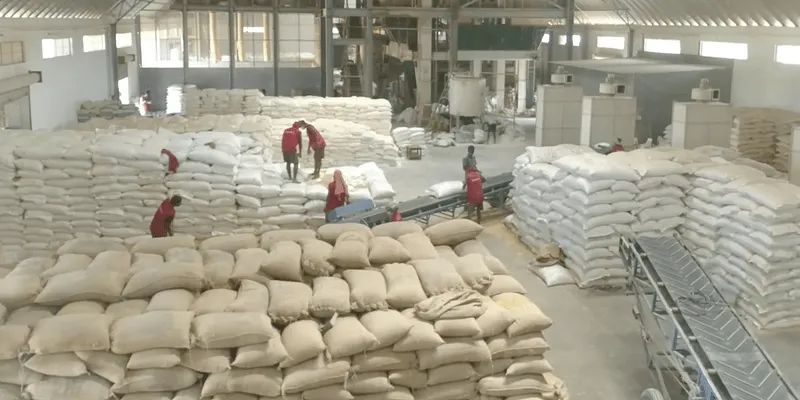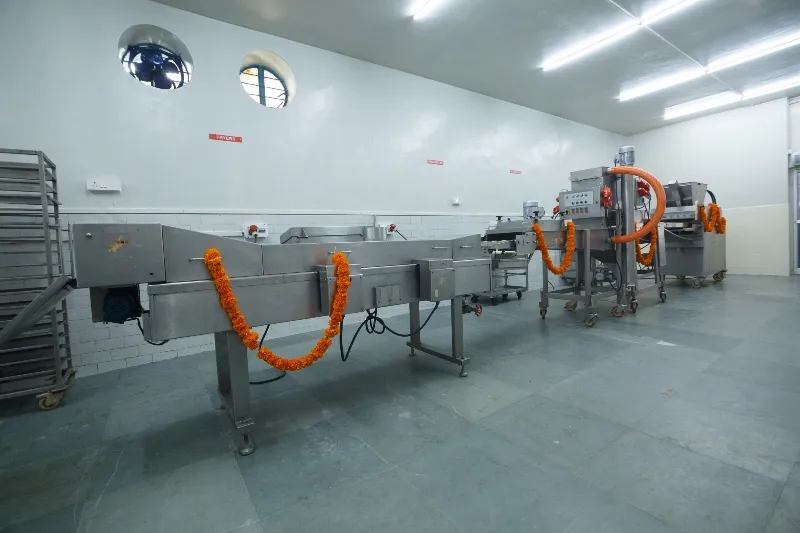4 years, 52 outlets: How Nandu’s touched operational profitability despite the pandemic
Bengaluru-based meat startup Nandu’s has seen 2X growth every year for the last three years and aims to strengthen its position by growing to 125 outlets in key markets such as Hyderabad, Chennai, Mumbai, Pune, and Delhi.
In 2008, Narendra K Pasuparthy left the US and returned to India to join Bengaluru-based Nanda Group, his family’s Rs 500 crore poultry business that was established in 1963.
Eight years later, in 2016, he decided to launch Nandu’s to bring fresh quality 100 percent traceable meat to the consumer.
Today, is a fully integrated and omnichannel chicken brand with over 52 stores across Bengaluru. It focuses on offering quality and hygienic chicken, which is free from hormones, steroids, antibiotics, and growth promoters.

Nandu’s Chicken claims it is now profitable at an operational level, with 2X growth every year. It aims to strengthen its position in the industry by entering new markets such as Hyderabad, Chennai, Mumbai, Pune, Delhi, and Kochi.
It has big plans: to become a brand with 125 outlets across key markets from the current 43 stores by March 2021 and grow to 600 stores pan-India in the next five years.
The company, which has a turnover of over Rs 500 crore, is now targeting a revenue of Rs 2,000 crore. Nandu's is closing on Rs 50 crore revenue for FY21 and a growth projection of 100 percent Y-o-Y for the next five years.
Managing the pandemic
Narendra, CEO of Nandu's, in a conversation with YourStory, says the reason the company was able to create this dent and stay strong despite the pandemic is “because of the work we had done to set up a strong and clean base for meat production from day one”.
“Owning the entire supply chain and putting in the initial capex investment made it easy for us during the pandemic,” he says, adding that from the chickens, farms, and farmer relationships to transport, logistics, and butchers – everything was in-house. “This helped us thrive during the pandemic.”
He adds that Nandu’s was able to restart operations within three days.
“We were among the first to approach the government and begin operations of our feed plants. As we were omnichannel, we were aware that there would be increased demand for delivery online,” he says.
As feed came under the Essential Commodities Act, it could be transported to chicken farms once the feed mills began to operate.
The team also put in measures to ensure hygiene and sanitation. “The manufacturing hubs, machinery, and people always ensured these measures, including wearing face shields and masks. Our people are always in hairnets, wear aprons and gowns, and the spaces are compulsorily sanitised. Temperature checks and regular health checkups were a part of our operational processes from day one,” Narendra says.
The team ensured that the staff had living quarters and regular health checkups. “All necessary training on hygiene was done.”
Building a visible supply chain
When Narendra started Nandu’s he knew that supply chain visibility and transparency were essential to ensure that consumers received quality meat on their tables. This meant owning the entire supply chain. The Nanda Group already owned farms and the backend, courtesy their earlier brand where they produced eggs.
The Nanda Group itself produces over three million chicks through its farms. Over 80 percent of these are B2B-focused and delivered to independent poultry farms, while 20 percent are grown and sold for consumer consumption.
The team uses contract farming methods, identifying farmers and providing fields, feed, management, and technical services.
More than 350 farmers across Karnataka rear chicks for Nandu’s Chicken. A team of 30 people is deployed to help the farmers, who don’t face any market risk.
Narendra, who had worked as a software engineer in the US, knew how the power of technology could be wielded to set up the infrastructure needed to monitor every stage of meat production. “We needed to ensure that we had the farms that reared chickens in the right way, all the way up to processing and retailing,” he says.

The factory and Machinery
From developing chicken feed to parent breeding and hatcheries, the group offers an end-to-end solution – this was what would eventually enable complete transparency.
“This starts with nutritionists who formulate the right kind of feed needed for the chicks. The growth of the hens, egg health, the hatching of eggs, incubation of chicks, and other processes are captured by an ERP.”
For the first few years, Narendra focused on understanding the family business and where technology could play a key role. For example, some of the farms are solar-powered and the litter is processed to produce bio-gas. The capex (undisclosed), while heavy, put the team in an enviable position.
The growing online meat market
India consumes meat worth around $30 billion every year, and the demand is expected to grow faster, driven by economic growth, rising per capita income, urban trends, and a rise in the awareness of the nutrition provided by meat and related products.
However, 90 percent of this demand has been primarily addressed by the unorganised market. Brands like , , Nandu’s Chicken, and Meatigo aim to organise this 90 percent.
Rohan Agarwal, Director, , has stated that the significant shift in the broader e-grocery market is also seen in the online meat segment. According to RedSeer, India’s meat market was pegged at Rs 330,000 crore in 2019 and likely to touch Rs 460,000 crore by 2024.
“Our research shows that the online meat market has grown 2.5-3X since Covid. This was driven by COVID-related apprehensions while purchasing from offline/local butchers. Online players effectively communicated their superior quality and hygiene practices, which boosted consumer confidence. Therefore, online players gained significant number of new users since COVID, even as existing users ordered more, which boosted volumes.”
The meat of the matter? Nandu’s and other meat startups are poised for greater growth.
Edited by Teja Lele



![[Behind the Scenes] What Licious needs to organise India’s $30B meat consumption market](https://images.yourstory.com/cs/2/a9efa9c0-2dd9-11e9-adc5-2d913c55075e/Vivek_and_Abhay15552626191231565354176511.png?fm=png&auto=format&h=100&w=100&crop=entropy&fit=crop)




